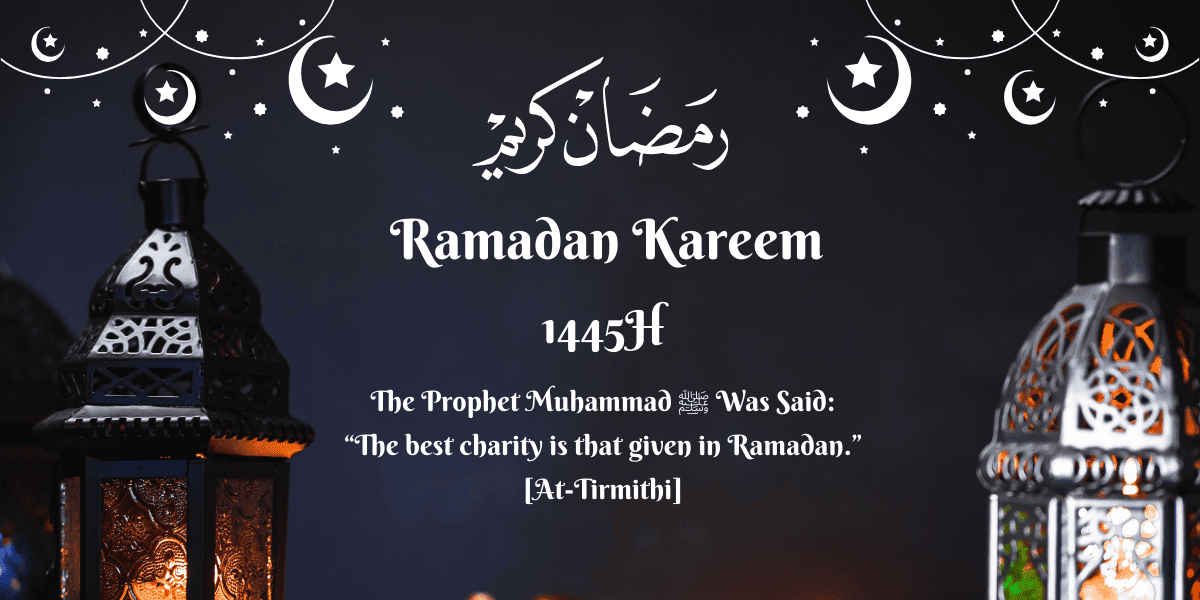The significance of Ramadan for Muslims across the globe is profound, providing a period for deep reflection on their conduct in accordance with Islam. This sacred time permits Muslims to seek forgiveness from Allah through fasting and prayer, inviting numerous blessings. Here’s a comprehensive overview of Ramadan’s importance and the reasons behind Muslims’ fasting during this period.
Significance of Ramadan Donation
In Islam, charity and generosity hold special importance in the life of a Muslim. It is believed that charity benefits not only the recipients but also the givers, who are greatly rewarded.
According to the Holy Quran, Allah says:
“Ramadan is the month of giving and mercy, during which Allah blesses believers with forgiveness and protection from Hellfire. Therefore, those who show mercy and generosity in Ramadan will receive even more mercy and generosity from Allah, along with countless blessings.”
Abu Huraira reported: The Messenger of Allah, peace and blessings be upon him, said when the month of Ramadan arrived:
قَدْ جَاءَكُمْ رَمَضَانُ شَهْرٌ مُبَارَكٌ افْتَرَضَ اللَّهُ عَلَيْكُمْ صِيَامَهُ تُفْتَحُ فِيهِ أَبْوَابُ الْجَنَّةِ وَيُغْلَقُ فِيهِ أَبْوَابُ الْجَحِيمِ وَتُغَلُّ فِيهِ الشَّيَاطِينُ فِيهِ لَيْلَةٌ خَيْرٌ مِنْ أَلْفِ شَهْرٍ مَنْ حُرِمَ خَيْرَهَا قَدْ حُرِمَ
Prophet Muhammad (PBUH) is reported to have said:
“Ramadan is an honorable and blessed month, where the rewards for generosity are multiplied.”
Due to the immense significance of Ramadan in the Islamic calendar, it is a time when all good deeds receive extra rewards and blessings.
Different Types of Ramadan Donations
Charity during Ramadan can take various forms. Here are some of the top ways to contribute to the community during this holy month.
Different Types of Donations During Ramadan
Donating during Ramadan can come in various forms. Here are some of the most effective ways to contribute to the community during this sacred month.
1. Zakat – One of the Five Pillars of Islam
As one of the five pillars of Islam, Zakat is a compulsory form of charity. Every year, eligible Muslims must donate a specific portion of their wealth to support the poor and needy. Giving Zakat is seen as a significant act of worship and is believed to cleanse one’s annual earnings. The amount of Zakat paid is determined by an individual’s income and the value of their possessions. Typically, the minimum requirement for eligible individuals is 1/40th or 2.5% of their total wealth and savings. Although Zakat can be given at any time during the year, Ramadan is considered an optimal time due to the increased rewards for charitable deeds during this holy month.
Must Read: What Is Zakat? – Meaning, Importance, Who Is Eligible, Benefits of Zakat
2. Donating for Ramadan Iftar – Food Donations During Ramadan
One of the most effective ways to enhance one’s faith and increase blessings during Ramadan is by providing iftar meals to those in need. Donating Ramadan food packs can be a meaningful way to support both society and the less fortunate.
Prophet Muhammad (ﷺ) said:
“Whoever provides food for a fasting person to break his fast will receive the same reward as the fasting person, without diminishing the fasting person’s reward.”
During the holy month, one can donate meals to the local mosque or provide food for a needy family. Feeding the poor not only increases the rewards of charity but also helps expiate the sins of the giver. Providing groceries to impoverished families during Ramadan enables them to prepare iftar meals and break their fasts.
3. What Is Fidya & Kaffara
Fidya is an obligatory charitable donation intended to compensate for missed fasts, which is permissible only when one has a valid excuse for not fasting and cannot make up for it at a later time. By contributing your Fidya amount in 2024, you can provide two impoverished people with a meal each or feed someone living in poverty twice.
Kaffarah is an obligatory religious donation to help those most in need. Kaffara is made when a Muslim deliberately misses a fast or intentionally breaks their fast without a valid reason. To atone for their broken fast, religious tradition states that adult Muslims must fast continuously for 60 days. If you are unable to fast consequently for 60 days, the requirement is to provide one person with two meals a day, for two months.
4. Donate Cooked Meals
Albaraka Welfare Trust is dedicated to helping those facing daily food challenges. In Pakistan, where food insecurity is a pressing issue, we are committed to combating hunger in various regions, both locally and globally. As per the Food Policy report, a significant number of people in Pakistan suffer from malnutrition.
5. Sadaqah – Small acts of kindness
Sadaqah, a selfless act of kindness, involves giving without expecting anything in return. It ranges from small gestures like sharing a smile or offering help to more substantial acts such as donating to the homeless or providing support to friends and family.
Your contribution can range from acts of kindness to financial donations. For instance, Sadaqah includes voluntary donations, assisting those in need, offering a smile, or even removing obstacles from your path. Aqiqah, Fidya, and Kaffarah also fall under the category of Sadaqah.
Must Read: What is Sadaqah? Meaning, Types, Benefits, Benefits of Sadaqah
When is Ramadan in 2024?
Every year, Muslims around the world eagerly anticipate the arrival of the sacred month of fasting, blessings, and self-reflection. The start date of Ramadan varies according to the lunar calendar. In 2024, it is projected to commence on the evening of Sunday, March 10, and conclude on April 8, 2024.
Conclusion
Ramadan holds immense significance beyond its role as a period of fasting. It is not only a time for spiritual devotion but also a chance for personal growth and improvement. This year, let us unite to make the most of this holy month by increasing our worship and extending a helping hand to those in need, enabling them to fulfill their obligations with ease.



